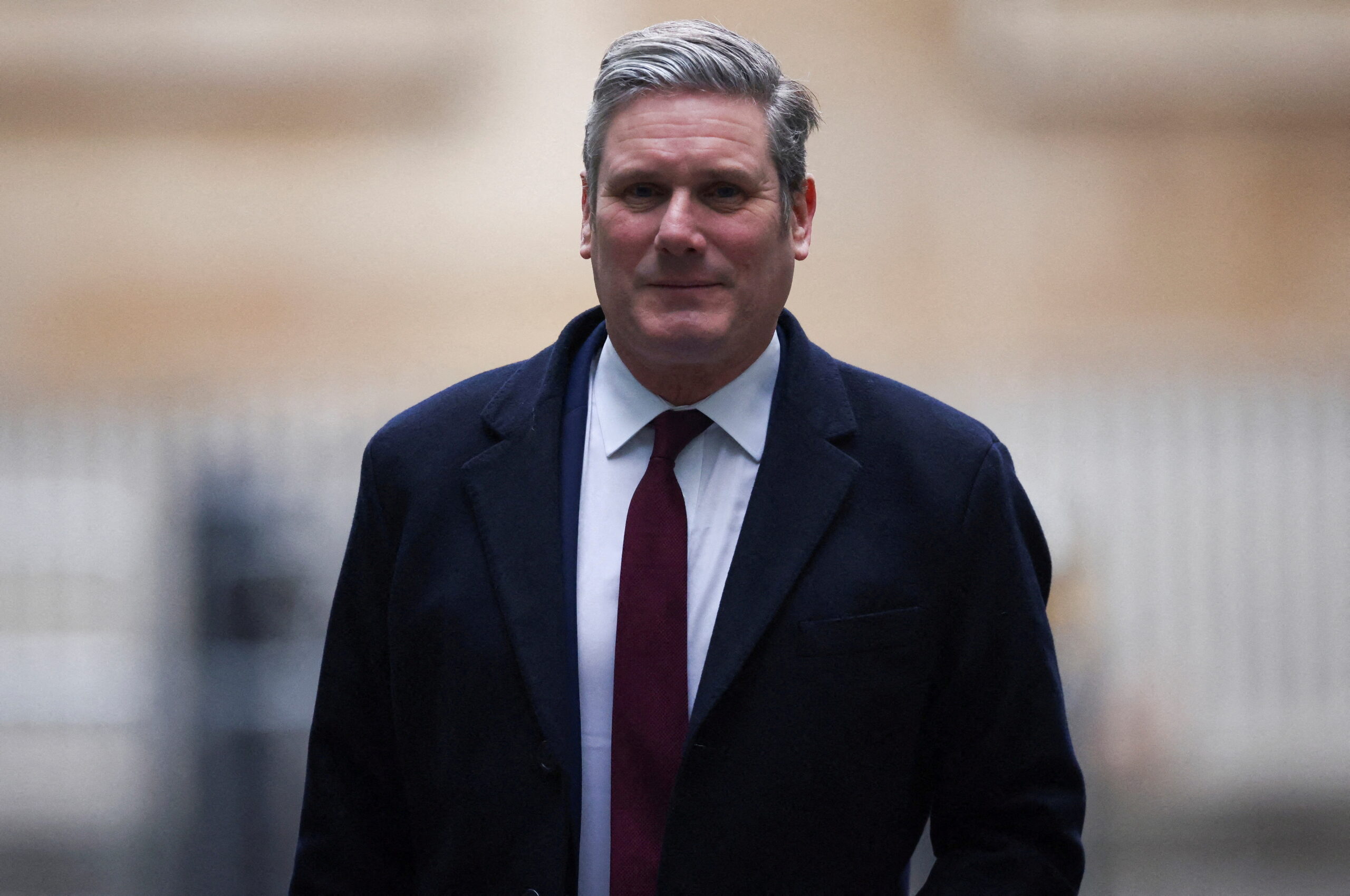Why is Starmer Reopening the Pandora’s Box of Brexit?
Nobody's forcing him to say anything.
by Andrew Fisher
6 July 2022

For all Britain’s major political parties, Brexit is predominantly an exercise in triangulation, not serious policy development.
It is in that context that Keir Starmer spoke at the Irish embassy on Monday night to declare that Labour will not reverse Brexit, nor join the single market or customs union, nor restore freedom of movement.
Having taken a near two-year vow of silence on the issue, Starmer’s Labour is now attempting to firmly shut the door on Brexit.
Starmer described Johnson’s deal as “holding us back” and causing a “stagnant economy”. His proposed reforms? “Mutual recognition of product standards” and “maintaining high standards for food and animal products” (dynamic alignment, as it’s technically called). Since the EU won’t switch to UK standards, in practice Starmer’s proposals probably mean the UK accepting EU rules without having a say (even if Starmer says he would want to match or exceed EU standards, he’d still have to sign some sort of agreement committing the UK to do so).
Other stuff about negotiating security agreements, access to the Horizon scheme for researchers and limited free movement for touring performers all seem feasible, if insubstantial: none of this will transform the UK economy, nor will it have people flocking to the ballot boxes.
As Robert Peston pointed out to Starmer: “There are no fundamental changes to our Brexit deal that you’re proposing.” Starmer didn’t deny it.
So that’s his line: tinker with Brexit, but we’re out, no backtracking.
There’s a saying in boxing: “Everybody’s got a plan until they get punched in the face.” However well-laid Starmer’s plans, it’s yet to be seen how they’ll fare under pressure.
Will the Tories be able to portray Starmer’s moves as unpicking Brexit by stealth? Or descending into internecine warfare once more, will they have focus or credibility enough to launch such an attack?
Another question is whether this cracking ajar of the Brexit debate by Starmer emboldens the Lib Dems, Greens or Scottish National party (SNP) to call for more substantial changes, like a customs union or single market membership, and whether that could that mobilise a chunk of voters away from Labour.
Given the Lib Dems are benefiting from Tory switchers in rural areas they are unlikely to want to alienate recently-rewon soft Brexiteers, but they may calculate that their liberal Tory switchers favour closer alignment, and they might pick up a few alienated urban Labour voters who had switched from them to Starmer’s Labour. The Greens, however, seem poised to capitalise on Labour’s stauncher Brexit stance to capture young radical voters without upsetting its growing contingent of ex-Tory voters. “Today Keir Starmer has abandoned Labour’s support for rejoining Europe, tweeted Scottish Young Greens. “Labour’s given up on Europe.”
Today @Keir_Starmer has abandoned Labour’s support for rejoining Europe. He says we should “make Brexit work” – a Brexit that the people of Scotland voted against.
Labour’s given up on Europe. Scotland hasn’t.
Only independence can put Scotland back in Europe 🏴🇪🇺 pic.twitter.com/8cbvBotuxA
— Scottish Young Greens (@scotyounggreens) July 4, 2022
“Brexit was a project to serve interests of oligarchs and tax avoiders.,” added the party’s comms coordinator Molly Scott Cato. “Why on earth would Keir Starmer want to make that work?”
Brexit was a project to serve interests of oligarchs and tax avoiders
And to undermine social/environmental protections
Why on earth would @Keir_Starmer want to make that work?
Only much closer economic relationship with EU partners will reverse economic destruction of Brexit
— Green💚🌻Molly (@GreenPartyMolly) July 4, 2022
In Scotland, Starmer has less to lose. With the Tories imploding as the favoured unionist option, Starmer’s “make Brexit work” gambit may not hinder Scottish Labour’s prospects.
Starmer’s team is trying to position him as someone who accepts Brexit and is not ducking a difficult issue.
However, his new stance could end up reigniting Brexit divides across Labour, too. Will there be a concerted campaign by the Another Europe is Possible lot to mobilise for conference freedom of movement, echoing Keir Starmer’s long-since discarded leadership campaign pledge?
London mayor Sadiq Khan is already calling for the UK to join the single market, and there are voices on the Labour backbenches who will follow him. Lone maverick Rosie Duffield MP is the only public critic so far, quote-tweeting Starmer’s speech with “not in my name”. With manufacturing tanking, will some unions renew their calls for a customs union?
Starmer’s gamble is that many remainers now want the Tories out more than they want back in the EU. So Starmer can bank their votes while reassuring soft-leavers that he’ll only tweak, not reverse, Brexit.
From Cameron’s decision to call the referendum in the first place to draw UKIP votes back to the Tories, Brexit has been about building a political coalition. Starmer’s “make Brexit work” speech is trying to tempt anti-Johnson leave voters into his own. As Cameron found, such gambles can easily backfire.
Andrew Fisher is a freelance writer and policy consultant. From 2016 to 2019 he was the Labour party’s executive director of policy.


